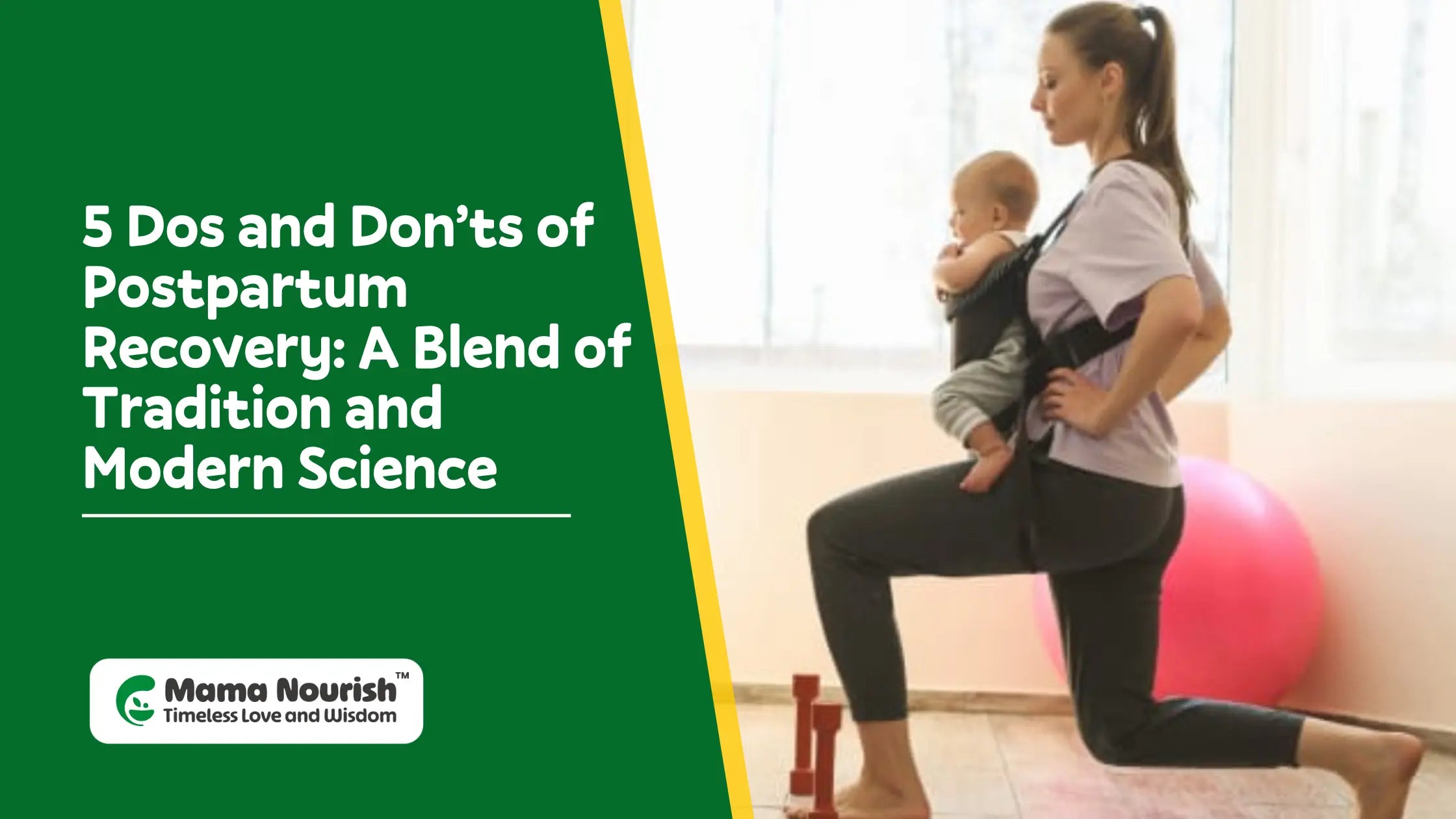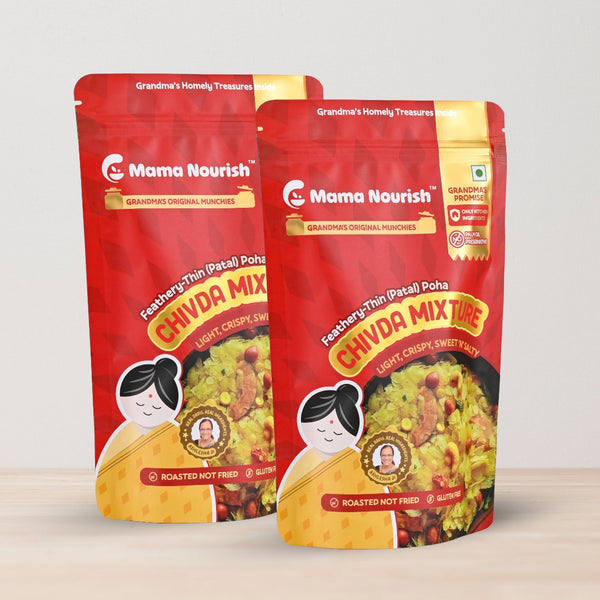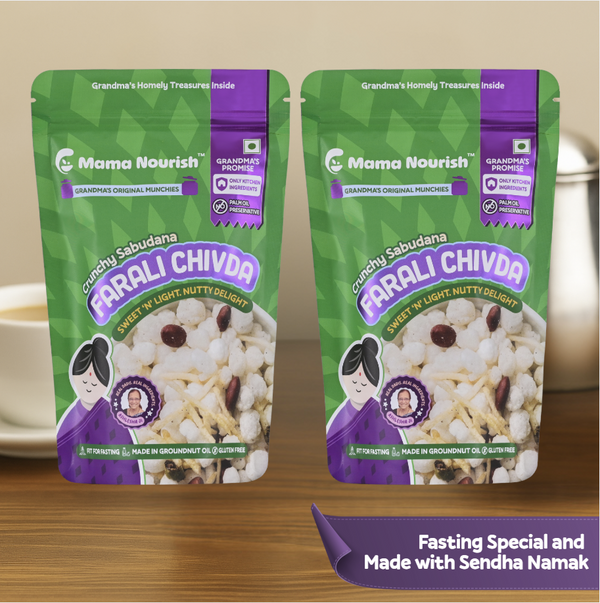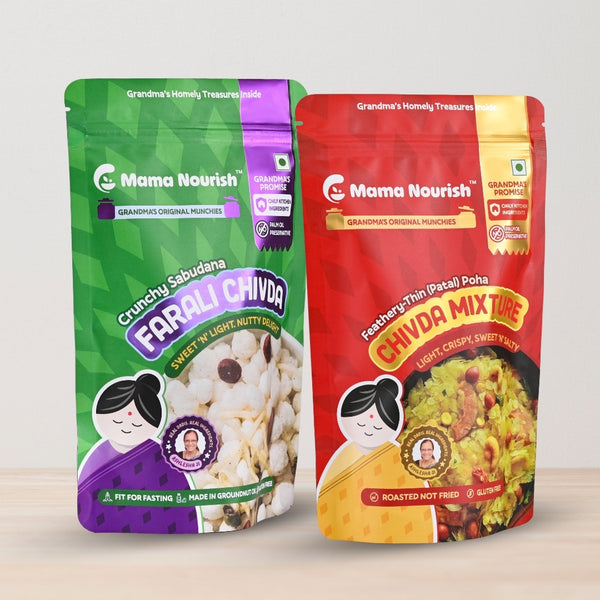Home
>
Nourishing Trails
5 Dos and Don’ts of Postpartum Recovery: A Blend of Tradition and Modern Science

5 Dos and Don’ts of Postpartum Recovery: A Blend of Tradition and Modern Science
Being a new mother is an overwhelmingly joyful experience. The simple coos, tiny fingers wrapping around yours – it's a journey of discovery and immense love. These incomparable moments of happiness are also full of challenges as your body and mind recover from the tremendous transformation it went through during pregnancy and delivery, a journey that spanned more than a year.
But, when it comes to postpartum recovery, most women face the dilemma- should we follow tradition or modern science?
For civilisations as old as ours, the shared wisdom of mothers across time and space formed traditions which are now affirmed by modern science. So, it's a happy convergence of traditional wisdom and modern science rather than a contradiction. In fact, people today are becoming more aware of this traditional wisdom and everyone, from celebrities to nutritionists, is embracing them wholeheartedly.
Let's uncover dos and don'ts for a healthy post-delivery recovery journey guided by tradition and modern science.
5 Dos
1. Getting Enough Rest and Doing Light Exercise

The first 45 days post-delivery are most important for both mother and baby. Since the body underwent tremendous stress and transformation, this period is crucial for healing your body. It extends up to 90 days in the case of C-section.
Rest promotes healing, helps the body recover from childbirth stress, and supports overall well-being. Ensuring sufficient rest can be challenging with a new baby demanding attention, care, and juggling household responsibilities. Seek support from family members for baby care and household tasks to ensure adequate rest.
Light exercise aids in restoring energy levels, enhances mood, and contributes to gradual physical recovery without straining the body. Generally, you can start exercising within 2 – 3 days after giving birth. In case of a C-section, you need to wait longer. Walking is one of the best-recommended exercises. You can try walking in the house.
2. Add Easy to Digest Protein Rich Foods to Your Diet
The post-delivery period requires high-nutritional food, but the digestive system is not yet ready to digest complex meals. So, traditionally, our mothers fondly recommend new mothers eat easy-to-digest and light food instead of whole, complex and heavy meals.
One of the rich protein sources recommended by our grandmothers is Moong lentil or green gram. In fact, 100g of moong dal provides 24g of protein. It is worth noting that While they recommend moong dal, it is advised to stay away from chickpeas, peas and beans very early after delivery as they may cause bloating for the new mother. You can try making dishes like moong dal khichdi to add moong dal to your dirt.
Proteins are essential for tissue repair and muscle recovery, aiding in the healing process after childbirth. Additionally, protein supports the production of breast milk, contributing to the nutritional needs of both the mother and the newborn.


To aid digestion, grandmothers recommend adding cumin to your diet.
Ajwain ka pani(carom infusion) is another option; the carom seeds/ ajwain is a lactation stimulant with anti-inflammatory, antiviral and antibacterial properties. Additionally, it supports bone health and aids digestion.
Keep in mind that while you are breastfeeding, your body needs about 450 to 500 extra calories a day to make breast milk for your baby. Hence, you require about 2,500 total calories per day. Make sure to add these extra calories to your diet.
Along with proteins, nutrient-rich food is needed for a healthy postpartum recovery. Pregnancy and childbirth cause significant loss of calcium from your body. Eat calcium-rich food like milk to enhance the calcium level.
Similarly, the dark circles around the eyes during the postpartum period are caused due to a lack of iron and vitamin B6. Adding til ke ladoo, or Coconut with jaggery, and bajra roti with ghee and gur are the natural ways to solve these issues.

Almonds are another recommended nutrient-rich food for new mothers. They are rich in tocopherols and other phytonutrients, promoting lustre in hair and a radiant complexion. They contribute to muscle density and bone health. As per Rujuta Diwekar, almonds aid in preventing an uneven appearance on the stomach post-delivery and assist in regaining shape.
3. Eat Natural Galactagogues
Galactagogues refer to food items that stimulate milk production. The generally consumed galactagogues are gondh, dates, fenugreek or methi seeds, cumin, aniseeds, carom seeds, fennel seeds and ginger.
The gondh provides sustained energy and helps to manage weight. Studies demonstrated that consumption of gond results in reduced BMI (Body Mass Index)/and body fat. Hence making it ideal for managing weight and regaining shape.
Do you know that Alia Bhatt embraced gond ladoos in her postpartum recovery?
You can try eating them by making gond ladoos, halwas, at home, or explore our gond Laddu bar to experience the goodness of gondh.

Similarly, Fenugreek can be consumed by making methi ladoos. The AYUSH Ministry recommends preparing ladoos by using Methi (Fenugreek), Shunthi(Dry ginger), Nariyal (Dry coconut), Ajwain (Carom seeds), Shatavari(Asparagus racemosus Willd.), Saunf (Fennel seeds), Gond(Tragacanth or acacia gum), Khas khas (Poppy seeds), Chandrashoor (Lepidium sativum L.), Shatavari (Asparagus racemosus Willd.), Vidari (Pueraria tuberosa (Willd.) DC.), Gud (Jaggery) and a mixture of various dry fruits for new mothers.

Drinking milk with turmeric and ginger is another way to enhance milk supply. The studies show ginger can increase human milk volume.
4. Drink a Lot of Water

The body loses a lot of liquids while breastfeeding; hence, it's essential to drink plenty of water to stay hydrated and improve milk production. It’s recommended to drink 8-10 glasses of water a day. But it is also advisable to avoid cold water.
Drinking fluids, especially warm waters, helps to deal with constipation, which is commonly experienced post-delivery. Generally, it arises due to the slowdown of the gastrointestinal system during labor, a result of significant hormonal changes experienced during pregnancy and childbirth. It may take several months for the digestive tract to adapt to its new position and recover from the inflammation caused by the birthing process.
The grandmothers especially recommend drinking warm water boiled with ginger; the ginger is anti-inflammatory and also aids digestion. Moreover, a 2021 study shows that it relieves post-partum pain.
5. Mental Wellbeing
Your mental well-being is as important as your physical well-being. So, pay attention to your emotional needs. Watch out for baby blues and signs of postpartum depression like anxiety, mood swings, sadness, etc.
The postpartum period is a period of transformation not only for your body but also for your mind. Hence, If you are experiencing any specific physical and mental issues, don't hesitate to reach out to a healthcare professional.
5 Don’ts
1. Stay Away From Spicy Food
The new mothers are advised to stay away from spicy food since it may cause irritations like colic gas, diarrhoea, and rashes in the breastfeeding infant.
2. Avoid Unhealthy Eats
Avoid cakes, burgers, sodas, processed foods like sausages, ham, and fried food. These foods carry no nutrition but contain harmful food additives.
In addition to it, traditionally, Gassy veggies like cabbage, potatoes and cauliflower are avoided for the first three weeks after childbirth. It is said that they de-harmonize the five body elements and disturb the digestive system.
3. Avoid Unhealthy Diet Plans
Don't follow unhealthy dieting like crash dieting, ketogenic diet, or a fruits and vegetables-only diet. Such diet plans do not give you enough nutrients you need during this crucial phase.
4. Stay Away from Alcoholic and Caffeinated Beverages
Such drinks can adversely affect breast milk and, hence, the baby’s development. So, stay away from them.
5. Avoid Lifting Weights and Strenuous Exercise
It is advisable to avoid heavy lifting during the postpartum period as your body requires enough rest to recover. Avoiding weight lifting during postpartum is recommended to prevent strain on the healing muscles and tissues. Postpartum recovery involves the body's adjustment after childbirth, and lifting heavy weights too soon can lead to added stress on the abdominal muscles and pelvic floor, potentially causing injury or hindering the recovery process. Gradual reintroduction of strength training should be done under guidance and after the body has had sufficient time to heal.
Embrace the Journey With Joy and Care…

The postpartum recovery journey is uniquely personal for each woman. While those demanding days may stress both your body and mind, with proper care, they can transform into an enjoyable experience, bringing happiness and new meaning to your life.
Share







